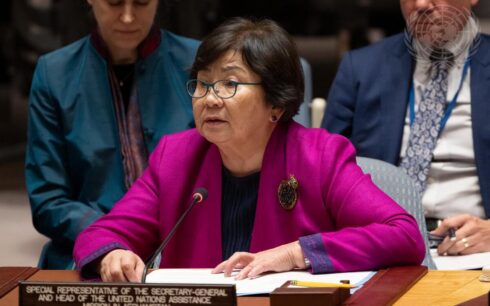ISLAMABAD, Pakistan — Pakistan will not grant any further extensions to Afghan nationals residing in the country without valid documentation, a senior official said Friday, as the government continues its mass deportation campaign.
Talal Chaudhry, Pakistan’s deputy interior minister, told reporters in Islamabad that the repatriation of undocumented Afghan migrants will continue in what he described as a process conducted with “human dignity.” He confirmed that the April 10 deadline for Afghan Citizen Card (ACC) holders to leave the country had expired and would not be extended.
“The return of Afghan migrants is being carried out under a single-document regime,” Chaudhry said, referring to new rules that allow only Afghan nationals with valid passports and visas to legally enter, work, or reside in Pakistan.
According to government figures, more than 857,000 undocumented Afghans, including ACC holders, have been repatriated since the policy was implemented on October 30, 2024.
Chaudhry said the repatriation is being carried out in three phases:
Phase 1: Removal of undocumented foreign nationals;
Phase 2: Repatriation of Afghan Citizen Card holders;
Phase 3: Return of those registered under Pakistan’s Proof of Registration (PoR) program for Afghan refugees.
To support the process, Chaudhry said 49 repatriation centers have been established across the country, including in Punjab, Khyber Pakhtunkhwa, Balochistan, Islamabad, Azad Kashmir, and Gilgit-Baltistan. These facilities are providing shelter, food, transportation, and medical care to returning migrants, he said.
All individuals processed for return are also undergoing biometric screening by Pakistan’s national database authority.
Official figures show that approximately 815,000 Afghans hold ACCs, while another 1.47 million are registered under the PoR program.
Pakistani officials have repeatedly claimed that some Afghan migrants are involved in drug trafficking and terrorist activity — accusations rejected by the Taliban authorities in Kabul.
Chaudhry defended the policy as a necessary shift in Pakistan’s immigration strategy after “decades of hosting millions of Afghan refugees.”





